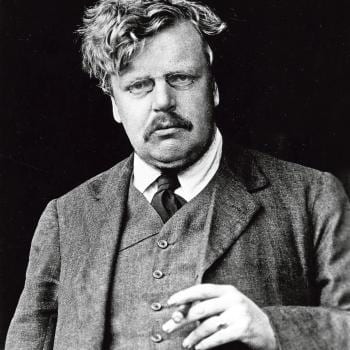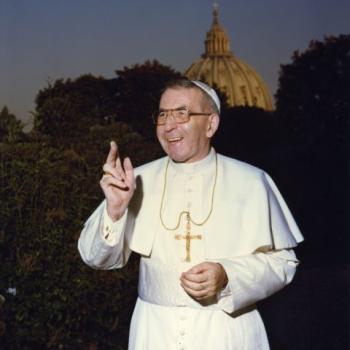I’m Catholic and the pope is the leader of the Catholic Church.
I’m an American and the president is the leader of our nation.
Back in the 19th century the reigning pontiff and the reigning president had this to say about the unity of the church and the unity of the nation.
June 16, 1846 – The Papal conclave of 1846 elects Pope Pius IX, beginning the longest reign in the history of the papacy.
Inter Multiplices
Pleading for Unity of Spirit
Pope BI. Pius IX – 1853
To Our Beloved Sons Cardinals of the Holy Roman Church, and Venerable Brothers Archbishops and Bishops of France.
Beloved Sons of Ours and Venerable Brothers, Greetings and Apostolic Benediction.
In that nation We are consoled to see how with God’s help the Catholic religion and its salutary doctrines flourish, flower, and prevail more every day. We are consoled by the care and zeal with which you fulfill your ministry and care for the safety and salvation of your beloved flock. And Our consolation increases as We learn more and more from the letters you write to Us: more, that is, about the filial piety, love, and reverence with which you glory to follow Us and this Chair of Peter. This chair is the center of Catholic truth and unity, that is, the head, mother, and teacher of all the Churches to which all honor and obedience must be offered. Every church must agree with it because of its greater preeminence — that is, those people who are in all respects faithful.
Now you know well that the most deadly foes of the Catholic religion have always waged a fierce war, but without success, against this Chair; they are by no means ignorant of the fact that religion itself can never totter and fall while this Chair remains intact, the Chair which rests on the rock which the proud gates of hell cannot overthrow and in which there is the whole and perfect solidity of the Christian religion.
Therefore let it be nearest to your heart to have peace among yourselves and to pursue peace with all, seriously reflecting that you are legates for Him who is not a God of dissension but of peace. He never ceased to prescribe peace to His disciples; indeed Christ, as each one of you knows, “promised all of his gifts and rewards in the preservation of peace. If we are the heirs of Christ, let us remain in the peace of Christ. If we are the sons of God, we must be peacemakers…
By supporting each other patiently in love and collaborating in the Evangelical faith, you will continue with ever more active zeal to keep watch by night over the flocks entrusted to your care and execute assiduously every part of your duties, even to the consummation of the saints in the building up of the body of Christ. Be convinced of this, however, that nothing will be more pleasing to Us, nothing more desirable, than that you do all those things which We know contribute to your greater profit and that of your faithful.
Given at Rome at St. Peter’s, March 21, 1853, in the seventh year of Our Pontificate.
Inter Multiplices – Papal Encyclicals

June 16, 1858 – Abraham Lincoln delivers his House Divided speech in Springfield, Illinois.
“A House Divided Against Itself Cannot Stand.”
Speech in Acceptance of Nomination as United States Senator, Made at the Close of the Republican State Convention, Springfield, Ill. June 16, 1858.
Mr. President and Gentlemen of the Convention: If we could first know where we are, and whither we are tending, we could better judge what to do, and how to do it. We are now far into the fifth year since a policy was initiated with the avowed object and confident promise of putting an end to slavery agitation. Under the operation of that policy, that agitation has not only not ceased, but has constantly augmented. In my opinion, it will not cease until a crisis shall have been reached and passed. “A house divided against itself cannot stand.” I believe this government cannot endure permanently half slave and half free. I do not expect the Union to be dissolved—I do not expect the house to fall—but I do expect it will cease to be divided. It will become all one thing, or all the other. Either the opponents of slavery will arrest the further spread of it, and place it where the public mind shall rest in the belief that it is in the course of ultimate extinction; or its advocates will push it forward till it shall become alike lawful in all the States, old as well as new, North as well as South.
Our cause, then, must be intrusted to, and conducted by, its own undoubted friends—those whose hands are free, whose hearts are in the work, who do care for the result. Two years ago the Republicans of the nation mustered over thirteen hundred thousand strong. We did this under the single impulse of resistance to a common danger, with every external circumstance against us. Of strange, discordant, and even hostile elements, we gathered from the four winds, and formed and fought the battle through, under the constant hot fire of a disciplined, proud, and pampered enemy. Did we brave all then to falter now?—now, when that same enemy is wavering, dissevered, and belligerent? The result is not doubtful. We shall not fail—if we stand firm, we shall not fail. Wise counsels may accelerate or mistakes delay it, but sooner or later, the victory is sure to come.













